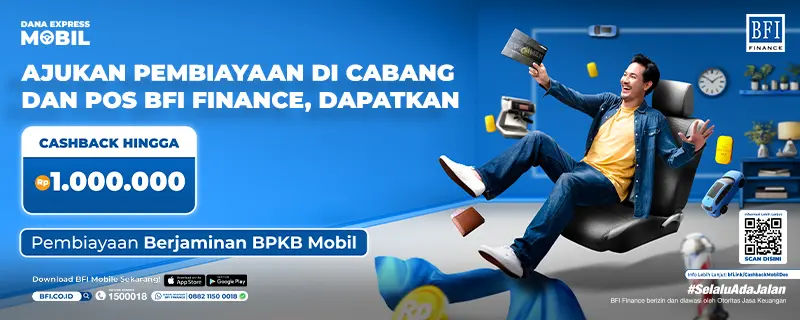Debt is often an alternative when you need unexpected funds. Therefore, managing debt becomes crucial to maintaining your financial stability.
It’s essential to manage debt wisely to ensure it’s paid off before the due date. How can you manage your debt while keeping your finances stable? Check out these recommendations from the BFI Finance Team!
1. Ways to Manage Debt Wisely
1.1 Create a Detailed List of Debts
The first step in managing your debt is to make a list of all your debts. This helps you transparently see the remaining debts and prepare a budget that includes them. From car loans to motorcycle installments and other debts, write down all ongoing debts in detail.
1.2 Draft a Budget
Next, draft a disciplined and realistic budget. Ensure you allocate part of your income to pay off debts and stick to the budget you’ve created. Don’t forget to include your debts in your monthly budget.
1.3 Set Debt Payment Priorities
An effective way to manage debt is to prioritize payments. According to the Financial Services Authority (OJK), if you have multiple debts, there are several methods to determine which debts to pay off first. Here are two approaches you can apply:
- Prioritize smaller debts. For instance, if you owe IDR 7 million for a phone and IDR 15 million for a motorcycle, prioritize the smaller debt first. This approach gives you a sense of achievement by paying off a debt faster. In this example, pay off the phone debt before tackling the motorcycle loan.
- Prioritize debts with higher interest rates. Alternatively, you can focus on debts with higher interest rates. For example, if your phone loan has a 3% interest rate while the motorcycle loan is only 1.5%, prioritize the phone loan to reduce the accumulating interest burden.
Both methods have their advantages, depending on your financial situation and the strategy that suits your repayment capabilities best.
1.4 Pay More Than the Minimum
If possible, pay more than the minimum required amount. Minimum payments are often applied to credit card debts. Although credit cards offer flexibility with minimum payments, financial experts generally don’t recommend this habit. Relying on minimum payments can prolong your debt repayment period and encourage unplanned financial transactions, leading to a habit of overspending. Paying more or in full helps you reduce your debt faster and minimizes accumulating interest.
1.5 Consolidate Your Debts
Another way to manage debt is by consolidating your loans when possible. If you have multiple debts with varying interest rates, consolidating them into one loan with a lower interest rate can simplify your repayment. This makes managing your debt easier, as you only need to make one monthly payment. Discuss debt consolidation options with your lender.
1.6 Negotiate Debt Restructuring
If you’re struggling to repay your debts, consider negotiating for a restructuring. For example, during the COVID-19 pandemic, many banks or financial institutions offered debt restructuring relief due to unstable debtor finances. Under such schemes, creditors may adjust terms such as extending repayment periods, lowering interest rates, or creating payment plans tailored to your situation. This approach can give you room to manage your finances better.
1.7 Reduce Non-Essential Expenses
Focus on cutting unnecessary expenses to avoid accumulating additional debt. Reduce spending on dining out or buying items under the guise of “self-rewards.” Seek cheaper alternatives to help manage your debt effectively.
1.8 Avoid Taking on New Debt
Make sure your current debts are fully paid off before considering new ones. Avoid the “robbing Peter to pay Paul” strategy, as it can trap you in a debt cycle. It’s better to clear all existing debts first and minimize borrowing, even for essential needs.
1.9 Utilize Assets
Lastly, consider using your assets to help pay off your debts. Assets like property, vehicles, or other valuables can provide a solution if your financial situation becomes critical. Selling assets might be a viable option when you’re unable to make regular payments.
BFI Friends, these are the ways to manage debt effectively and wisely. Pay off your debts before the due date, manage your finances well, and start building an emergency fund.
BFI Finance is a financing company providing loans secured by motorbike, car, or house certificates. Apply for financing to meet various needs such as daily expenses, business capital development, education, or home renovations. Enjoy high disbursement rates with competitive interest rates and flexible tenors. BFI Finance is officially licensed and supervised by the Financial Services Authority (OJK). #SelaluAdaJalan with BFI Finance as your financial solution.







